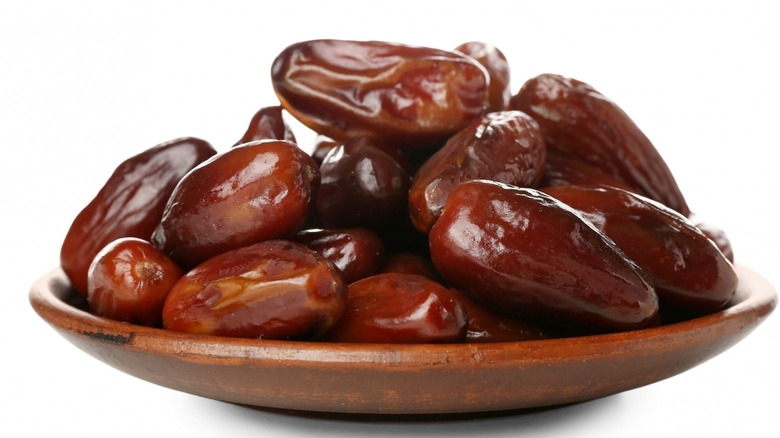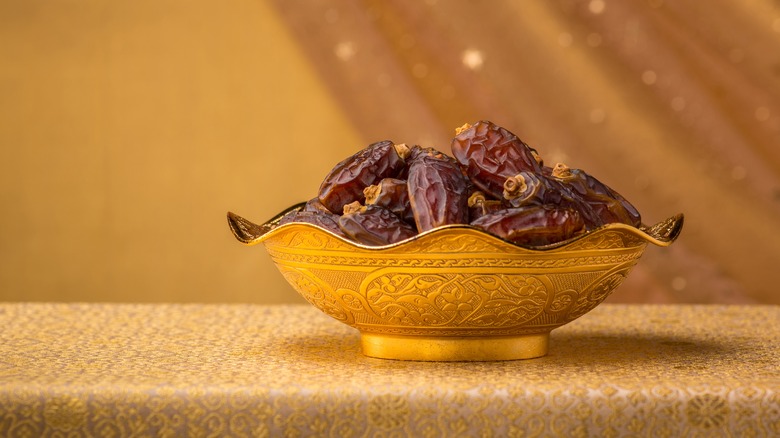How Dates Became A Staple Part Of Rosh Hashanah
When it comes to food at the table for the Jewish holiday Rosh Hashanah, every dish has a symbolic role to play. While apples and honey are eaten to symbolize new hope for the year, dates stand for either punishment for your nemesis or vanquishing your own misgivings for others. In other words, these chewy fruits represent self-reflection and putting an end to one's demons, so to speak. Dates (or t'marim in Hebrew) also symbolize putting aside any feuds. Rosh Hashanah is typically sometime in September or October, which overlaps with the months that dates are typically harvested.
The fruit has a strong association with the book of Deuteronomy in the Jewish bible, The Torah. According to the book, dates are the first of seven agricultural produce that God ordained the Jewish people to harvest. The fruit reappears several times throughout the history of the Israelites and has become an important part of Jewish culture. In fact, Israel is reportedly one of the largest exporters of dates in the world. However, while this fruit may have biblical origins, modern-day Jews have two men from the 20th century to thank for their prosperity in the country.
The history of dates in Israel
While during the biblical times dates were said to be so abundant that the land practically overflowed with them, things had largely changed in the thousands of years that followed. In fact, the date palms native to Israel had gone extinct. It was only during the 20th century that the Jewish people worked to remedy that situation. Israel's modern-day date industry is thanks to a man named Ben-Zion Israeli, born Benzion Chernomorsky.
Israeli played a major role in reintroducing date trees to the country, risking his own life and freedom in the process. Discovering date palms in Iraq that were sturdy enough to survive in Israel, he smuggled approximately 20,000 date plants from the country. At the time, transporting the plants from Iraq was considered illegal, so Israeli worked in secret. After Israeli died in 1954, Yani Avidov, one of his colleagues, completed Israeli's mission by smuggling thousands of additional plants into Israel.
The fruit remains intricately linked to the Jewish culture — as of 2021, Israel exports around 16% of all dates globally — and of course, is often served during holidays like Rosh Hashanah.

